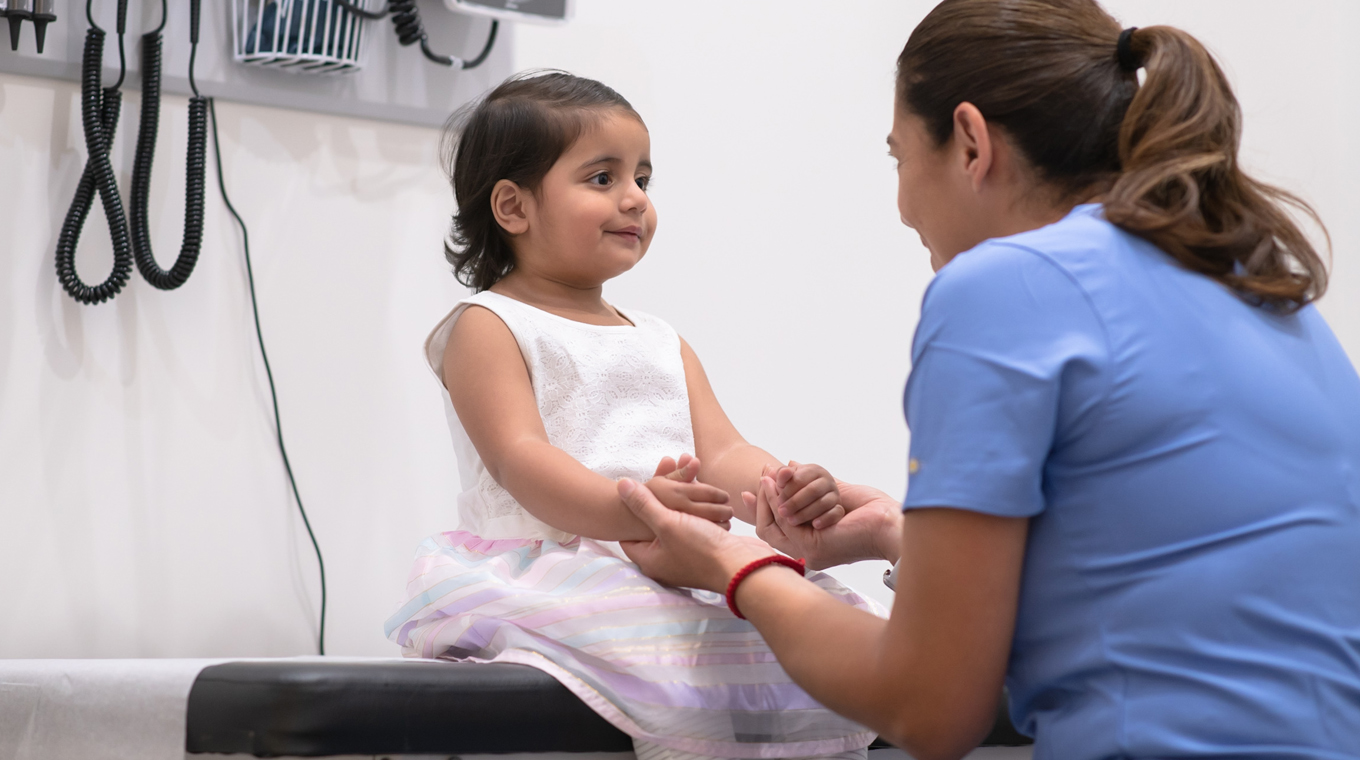

In this article:
As a parent, regardless of how much or little experience you have, you can always learn more about your child’s health and development. You may have unique concerns ranging from toddler development to a child getting their first period. Well-child visits with a pediatrician can provide the latest information you should know, as well as allow you room to discuss concerns — no matter how awkward.
As a busy parent, it may help to have a checklist of questions to ask. Below are some to help jog your memory and provide a starting point for more personalized questions about your child.
Taking your child to the pediatrician: The importance of well-child visits

Well-child visits provide an opportunity for parents, kids, and their healthcare providers to discuss and check on the child’s growth and development. The checkup allows doctors and families to proactively catch or address potential conditions or concerns early, before it may be more difficult to prevent or deal with. In particular, pediatricians are concerned about getting ahead of chronic adult diseases that are now showing up in children such as obesity, nutrition deficiencies, dental diseases, anxiety, and depression.
Checkups for children and babies are essential even during the pandemic. According to the American Academy of Pediatrics (AAP) there has been a significant drop in well-child visits, which has led to many children missing vaccinations and important checkup dates. While many parents have been hesitant to take their kids to the doctor since the lockdown began, Chicago pediatrician Vaziri Flais told the Washington Post that, “the greater risk would be to not stay up to date with your routine medical care and your vaccinations.”
Here is a recommended schedule of well baby checkups (check with your provider for your child’s particular needs):
- 1 month
- 2 months
- 4 months
- 6 months
- 9 months
- 12 months
- 15 months
- 18 months
- 2 years
- 2 1/2 years
- 3 years
- Every year after until 21 years
Remember to call your provider and make additional appointments if your child is ill in the interim.
What to expect during a well-child visit

In general, you can expect checkups to follow the same pattern regardless of age. Your child will be given a complete physical exam and will also be:
- Measured
- Weighed
- Screened for vision
- Screened for hearing issues
- Have developmental milestones assessed (depending on age of your child)
- Be given necessary immunizations
- Have applicable lab tests
Your pediatrician may also ask you about any family relationship issues you would like to discuss, your child’s schooling, and if you have access to community services you are entitled to.
Well-child visit checklist: Questions to ask your child’s pediatrician

Like coming up with the perfect comeback after an argument, our minds can blank when we’re at the doctor’s. Times like these, it may be best to keep a running checklist of questions on your phone to ask your child’s pediatrician.
Is my child hitting the appropriate growth and development milestones?
Many health issues for children manifest as growth problems so these developmental milestones — especially in babies and toddlers — can help your healthcare professional assess your child’s overall health. If there are concerns, you can discuss possible diet changes, various speech or physical therapies, or other measures to help your child.
Does my child need any vaccines now or soon? What kind? Can I get a copy of their immunization record?
While the Centers for Disease Control and Prevention (CDC) provides a guide to recommended child and adolescent immunization schedules, sometimes, it’s reassuring to ask your child’s doctor about both recommended and optional vaccines.
What infectious illnesses are going around? How can I prevent my child from getting sick?
Ask your pediatrician what illnesses are affecting your local area. Depending on your community and environment, there could be heightened risks of certain illnesses. Ask what measures you can take to prevent contagious conditions that do not have vaccines like colds, stomach viruses, or hand-foot-and-mouth disease.
If your well visits are during the fall or winter months, it can be a good time to get additional vaccines like the flu vaccine. “The flu vaccine is important to either prevent catching the disease or to make recovery a breeze if you do happen to get sick later in the year,” pediatrician and spokesperson for the American Academy of Pediatrics (AAP) Dr. Steph Lee told Mom.com.
Specific questions and concerns about your child’s health or behavior.
While this is super general, if your child is exhibiting behavior or physical symptoms you find worrisome, just ask your pediatrician. Some possible topics might include:
- Vision problems (squinting, sitting too close to the TV or tablets, headaches, not being able to see the board at school)
- Behavioral issues (hyperactivity, fighting, acting out, difficulty paying attention)
- Fatigue or sleep issues
- Bedwetting
- Allergies and food sensitivities
- Asthma or difficulty breathing
Questions about what to expect for tweens and teens.
When your child matures, your tween or teens may be reluctant to talk about their health — particularly with their doctor. Mom of three teens Gina Lincicum shared some questions to consider. “How do we know when acne is typical versus when we should see a dermatologist? How can we prepare for periods to start and what do you recommend for managing pain?” are some she suggested.
Other possible topics include:
- What to expect as a tween or teen
- Sex and sexual activity
- Puberty
- Piercings and tattoos
- Anxiety and depression
Depending on your state, the doctor may ask you to leave the room if you have a teenager. Mom of four Michelle Newby told Mom.com, “With teens, the real challenge is letting them be their own advocate for healthcare, especially since this is when medical information is their private information.”




